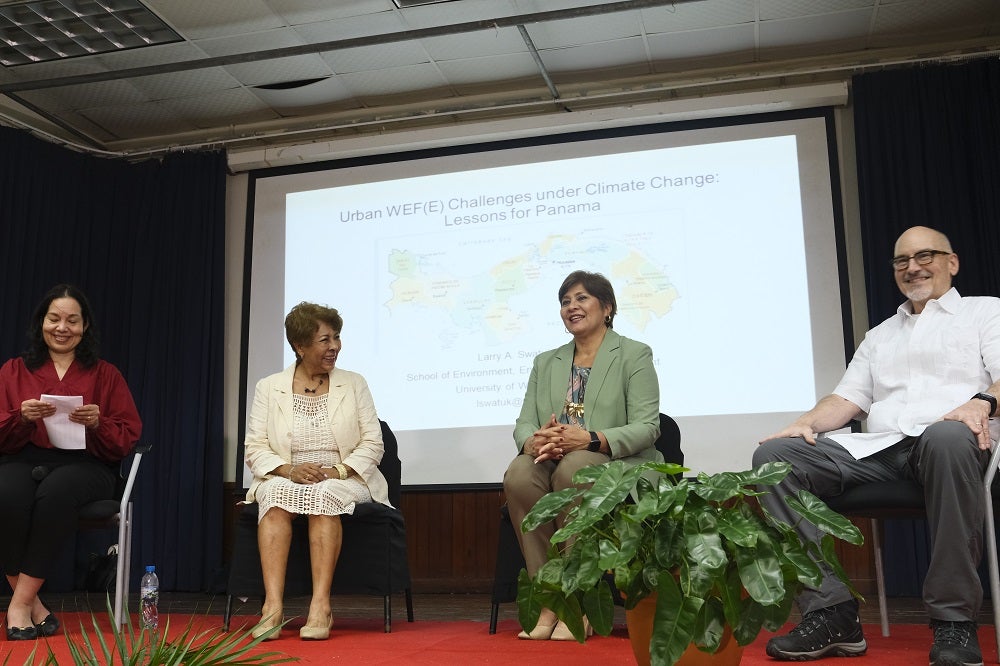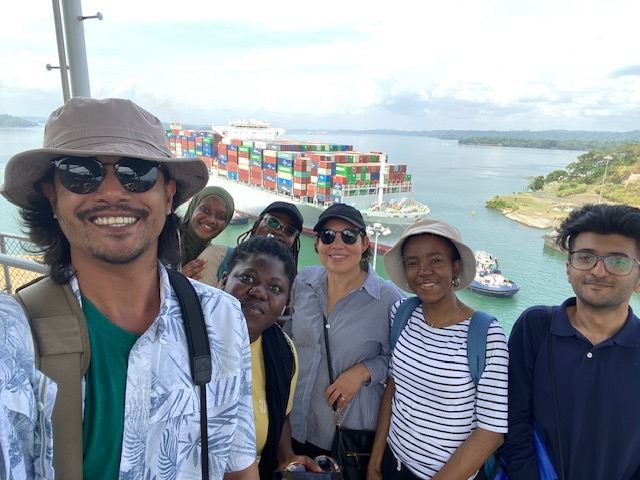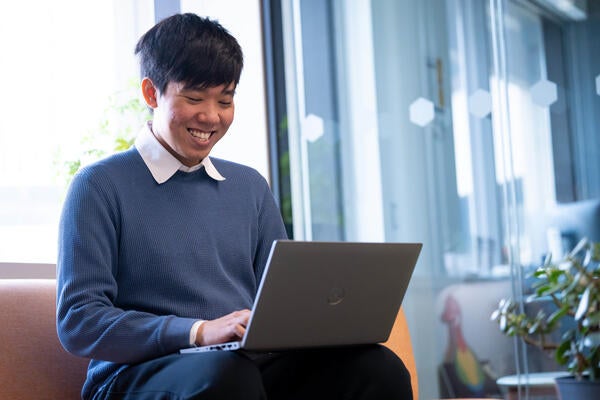
From classrooms to canals
A field course to Panama offers Faculty of Environment graduate students the opportunity to immerse in real-world water management challenges

A field course to Panama offers Faculty of Environment graduate students the opportunity to immerse in real-world water management challenges
By Chantal Vallis Faculty of EnvironmentPanama is considered a water-abundant nation, but last year a severe drought caused the Panama Canal to run out of fresh water. This crisis had critical consequences and forced officials to cut operations that disrupted worldwide shipping. The shortage underscored the complexities of water management in Panama during the age of climate change and raised important questions about water security that graduate students in the Faculty of Environment were looking to unpack.
At the end of winter term, students in the Master of Development Practice program embarked on a weeklong field course to Panama with researchers, Dr. Larry Swatuk and PhD candidate Ivonne Morales, in the School of Environment, Enterprise and Development (SEED) to experience firsthand the complexities facing the nation. “Just like Canada, Panama is a great example of a country that is embedded in the narrative of water abundance that we need to debunk,” said Morales, who is Panamanian. “Our group sought to understand the challenges and opportunities in managing water, energy and food in a sustainable way.”
Thanks to the connections Morales made from her PhD research on water security in Panama, she was able to connect the group with high-ranking administrators from the Panama Canal, Madden Dam and Miraflores Water Treatment Plant. These meetings and facility tours contextualized the political and operational challenges in managing water resources and were complemented by visits with San Miguelito Municipality, local groups, residents and academic institutions.

Ricaurte Martinez shared insights with the group about managing the Madden Dam and answered questions about long-term water management.

The group met with different authorities from the San Miguelito Municipality to talk about water and sanitation for residents. They also had the opportunity to tour the area and visit women entrepreneurs.

Dr. Swatuk hosted a conference at the University of Panama where group members contributed their insights on Urban WEF(E) Challenges under Climate Change: Lessons for Panama.
“Going to Panama and seeing the relationship between water, energy and food really brought our research to life and revealed that solutions are not as simple as they seem on paper,” said Victoria Uyojo Enemaku, a student who is interested in the gender impacts of urban water scarcity. “We really admired the way everybody we met was so passionate about their work, passionate about ensuring that the Panamanians were living decent lives and having good quality water.”
Meaningful experiential education opportunities like field courses inspire deeper partnerships and interdisciplinary solutions that open pathways for a sustainable future. But beyond unlocking creative approaches for real world impact, it’s evident that the experience shaped all their understanding of sustainability and development practice, making it an academic pursuit as well as a personal and professional transformational journey.
“It’s been a very good experiential learning experience for me because it’s given me these skills and ideas on how to develop conservation or behavior change programs,” Enemaku said. “I learned a lot about climate change by going to Panama and seeing the real effects, so I will keep it in mind when I return to work in Nigeria.”
Turjo Hafiz, is studying nature-based solutions for coastal cities in Asia. He is working as an intern with the RECOVER project, which focuses on enhancing small islands’ capacity to adapt to climate change using nature-based solutions. He found the field course had many synergies with this work.
“When I learned that the Mira Flores Dam works with gravity and doesn’t use a lot of water pumps, that was a mind-blowing experience for me,” Hafiz said. “It gives you a lot of insights into what can be done with other dams and shows what can be done by working with nature.”
The field course also complemented the students’ urban water security course research projects, the products of which are being presented at the 12th annual International Conference on Sustainable Development in New York. This year’s theme is Solutions for the future and Enemaku and Hafiz will be presenting alongside Morales who has plans to return to Panama to continue her research on water governance.
“Going to Panama with this group of students has been so great to see that knowledge about water management matters,” Morales said. “It was a beautiful opportunity because they offered new perspectives about water challenges and opportunities through their own lenses which informed my work.”

Students and Morales at the Panama Canal.
The field course in Panama was the first one held since the onset of the COVID-19 pandemic. In previous years, a SEED faculty member took students to Mexico, Jamaica and Trinidad and Tobago. Each field course focused on a different development challenge.
“In future, we hope to go back to Panama,” Swatuk said. “With the friendships and partnerships [that] we have developed it's an ideal location for experiential education.”
Photo credit: Turjo Hafiz and Ivonne Morales.

Read more
Redefining capstone learning by bringing students, faculty and community partners together to tackle real-world challenges

Read more
From co-op to climate leadership, Hoang Do drives real-world change in logistics sustainability

Read more
Here are the people and events behind some of this year’s most compelling Waterloo stories
The University of Waterloo acknowledges that much of our work takes place on the traditional territory of the Neutral, Anishinaabeg, and Haudenosaunee peoples. Our main campus is situated on the Haldimand Tract, the land granted to the Six Nations that includes six miles on each side of the Grand River. Our active work toward reconciliation takes place across our campuses through research, learning, teaching, and community building, and is co-ordinated within the Office of Indigenous Relations.